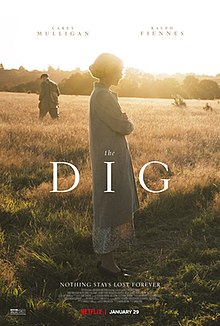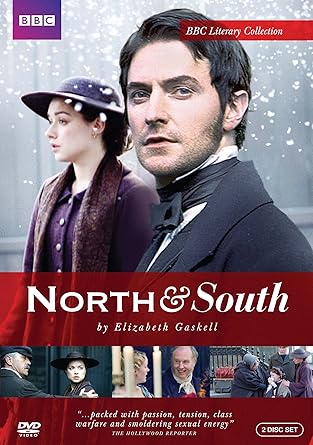An Ideal Husband. Oscar Wilde. 1893. 78 pages. [Source: Bought]
First sentence:
Mrs. Marchmont. Going on to
the Hartlocks’ to-night, Margaret?
Lady Basildon. I suppose
so. Are you?
Mrs. Marchmont. Yes.
Horribly tedious parties they give, don’t they?
Premise/plot: An Ideal Husband is a play by Oscar Wilde originally published in 1893. It opens with a party of sorts. Mrs. Cheveley finds a way to get an invitation so that she can blackmail Sir Robert Chiltern, an under-secretary for foreign affairs. She has a letter from his past--they had a mutual friends years ago--that could do him major damage politically if it's brought to light. She wants him to change his mind and more importantly change his speech and public stance on a matter. (She'll benefit financially from this change of opinion). He wants to say NO, NO, NEVER...but the idea of losing his wife's good opinion not to mention the good opinion of society at large and the government...well...he's tempted to give in. He confides in his oldest friend, Lord Goring; Goring's advice NEVER GIVE IN, NEVER SURRENDER. He wants a chance to find a different solution to this problem. But can he outwit Mrs. Cheveley?
Of course there are a few more under stories going on that make this one a wee bit more complex than my summary. (Like Mabel Chiltern (Robert's sister) courtship with Lord Goring).
My thoughts: I am really enjoying reading Wilde's plays! This one has to do with discretion/indiscretion, public opinion, morality, and relationships. And POLITICS. It was really such a treat to read this one.
Quotes:
Mabel Chiltern. [Coming up to Lord Caversham.] Why do you call Lord Goring good-for-nothing?
Lord Caversham. Because he
leads such an idle life.
Mabel Chiltern. How can you
say such a thing? Why, he rides in the Row at ten
o’clock in the morning, goes to the Opera three times a
week, changes his clothes at least five times a day, and dines
out every night of the season. You don’t call that
leading an idle life, do you?
Sir Robert Chiltern. What an
appalling philosophy that sounds! To attempt to classify
you, Mrs. Cheveley, would be an impertinence. But may I
ask, at heart, are you an optimist or a pessimist? Those
seem to be the only two fashionable religions left to us
nowadays.
Mrs. Cheveley. Oh, I’m
neither. Optimism begins in a broad grin, and Pessimism
ends with blue spectacles. Besides, they are both of them
merely poses.
Sir Robert Chiltern. You
prefer to be natural?
Mrs. Cheveley.
Sometimes. But it is such a very difficult pose to keep
up.
Mrs. Cheveley. Ah! the
strength of women comes from the fact that psychology cannot
explain us. Men can be analysed, women . . . merely
adored.
Mrs. Cheveley. Questions are
never indiscreet. Answers sometimes are.
Mabel Chiltern. What an
absurd reason!
Lord Goring. All reasons are
absurd.
Lord Goring. I love talking
about nothing, father. It is the only thing I know anything
about.
Lord Caversham. You seem to
me to be living entirely for pleasure.
Lord Goring. What else is
there to live for, father? Nothing ages like happiness.
Lord Goring. I adore
political parties. They are the only place left to us where
people don’t talk politics.
Lady Basildon. I delight in
talking politics. I talk them all day long. But I
can’t bear listening to them. I don’t know how
the unfortunate men in the House stand these long debates.
Lord Goring. By never
listening.
Lady Basildon. Really?
Lord Goring. [In his most
serious manner.] Of course. You see, it is a very
dangerous thing to listen. If one listens one may be
convinced; and a man who allows himself to be convinced by an
argument is a thoroughly unreasonable person.
Lord Goring. You should go to
bed, Miss Mabel.
Mabel Chiltern. Lord
Goring!
Lord Goring. My father told
me to go to bed an hour ago. I don’t see why I
shouldn’t give you the same advice. I always pass on
good advice. It is the only thing to do with it. It
is never of any use to oneself.
Lord Goring. Life is never
fair, Robert. And perhaps it is a good thing for most of us
that it is not.
Lord Goring. [Turning
round.] Well, she wore far too much rouge last night,
and not quite enough clothes. That is always a sign of
despair in a woman.
Lord Goring. It is always
worth while asking a question, though it is not always worth
while answering one.
Lord Goring. [After a long
pause.] Nobody is incapable of doing a foolish
thing. Nobody is incapable of doing a wrong thing.
Lord Goring.
[Rising.] No, Lady Chiltern, I am not a
Pessimist. Indeed I am not sure that I quite know what
Pessimism really means. All I do know is that life cannot
be understood without much charity, cannot be lived without much
charity. It is love, and not German philosophy, that is the
true explanation of this world, whatever may be the explanation
of the next. And if you are ever in trouble, Lady Chiltern,
trust me absolutely, and I will help you in every way I
can. If you ever want me, come to me for my assistance, and
you shall have it. Come at once to me.
Mabel Chiltern. Well, Tommy
has proposed to me again. Tommy really does nothing but
propose to me. He proposed to me last night in the
music-room, when I was quite unprotected, as there was an
elaborate trio going on. I didn’t dare to make the
smallest repartee, I need hardly tell you. If I had, it
would have stopped the music at once. Musical people are so
absurdly unreasonable. They always want one to be perfectly
dumb at the very moment when one is longing to be absolutely
deaf. Then he proposed to me in broad daylight this
morning, in front of that dreadful statue of Achilles.
Really, the things that go on in front of that work of art are
quite appalling. The police should interfere. At
luncheon I saw by the glare in his eye that he was going to
propose again, and I just managed to check him in time by
assuring him that I was a bimetallist. Fortunately I
don’t know what bimetallism means. And I don’t
believe anybody else does either. But the observation
crushed Tommy for ten minutes. He looked quite
shocked. And then Tommy is so annoying in the way he
proposes. If he proposed at the top of his voice, I should
not mind so much. That might produce some effect on the
public. But he does it in a horrid confidential way.
When Tommy wants to be romantic he talks to one just like a
doctor. I am very fond of Tommy, but his methods of
proposing are quite out of date. I wish, Gertrude, you
would speak to him, and tell him that once a week is quite often
enough to propose to any one, and that it should always be done
in a manner that attracts some attention.
Lady Markby.
[Reflecting.] You are remarkably modern,
Mabel. A little too modern, perhaps. Nothing is so
dangerous as being too modern. One is apt to grow
old-fashioned quite suddenly. I have known many instances
of it.
Lord Goring. Other people are
quite dreadful. The only possible society is oneself.
Phipps. Yes, my lord.
Lord Goring. To love oneself
is the beginning of a lifelong romance, Phipps.
Lord Goring. I am glad you
have called. I am going to give you some good advice.
Mrs. Cheveley. Oh! pray
don’t. One should never give a woman anything that
she can’t wear in the evening.
© 2021 Becky Laney of Becky's Book Reviews
 12. My Remarkable Journey: A Memoir. Katherine Johnson, Joylette Hylick, and
Katherine G. Moore. 2021. [May] 224 pages. [Source: Review copy]
12. My Remarkable Journey: A Memoir. Katherine Johnson, Joylette Hylick, and
Katherine G. Moore. 2021. [May] 224 pages. [Source: Review copy] 15. Worst-Case Collin. Rebecca Caprara. 2021. [September] 256 pages. [Source: Review copy]
15. Worst-Case Collin. Rebecca Caprara. 2021. [September] 256 pages. [Source: Review copy] 19. Blackout. Connie Willis. 2010. 610 pages. [Source: Bought]
19. Blackout. Connie Willis. 2010. 610 pages. [Source: Bought] 10. Pete the Cat: I Love My White Shoes. Eric Litwin. Illustrated by James Dean. 2010. 40 pages. [Source: Online Audio]
10. Pete the Cat: I Love My White Shoes. Eric Litwin. Illustrated by James Dean. 2010. 40 pages. [Source: Online Audio] 19. Ten Beautiful Things. Molly Beth Griffin. 2021. [January] 32 pages. [Source: Review copy]
19. Ten Beautiful Things. Molly Beth Griffin. 2021. [January] 32 pages. [Source: Review copy] 21. Summertime Sleepers: Animals that Estivate. Melissa Stewart. Illustrated
by Sarah S. Brannen. 2021. [April] 40 pages. [Source: Review copy]
21. Summertime Sleepers: Animals that Estivate. Melissa Stewart. Illustrated
by Sarah S. Brannen. 2021. [April] 40 pages. [Source: Review copy] 22. Seaside Stroll. Charles Trevino. Illustrated by Maribel Lechuga. 2021. [January] 32 pages. [Source: Review copy]
22. Seaside Stroll. Charles Trevino. Illustrated by Maribel Lechuga. 2021. [January] 32 pages. [Source: Review copy] 1. New American Standard Reference Edition. 1973. God. 1899 pages. [Source: Bought]
1. New American Standard Reference Edition. 1973. God. 1899 pages. [Source: Bought] 













